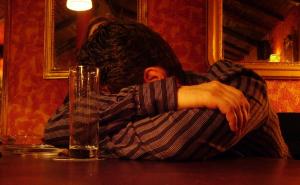Public Intoxication is a minor offense. The people who are cited for public intoxication are usually those who leave a bar or other type of establishment and start to yell or try to start a fight. Many people who are arrested for public intoxication have alcohol levels that are extremely high, and may have no prior criminal history.
Drugs, alcohol and ego. They are a bad mix. - Don Dokken
For the state to prove the offense of public intoxication they must show that you were intoxicated to such an extent that you affected those around you by disturbing the peace through actions or attempting to breach the peace by challenging others to fight. The following scenarios are some of the most common for public intoxication arrests:
- A person leaves a bar and is so drunk they start yelling threats or obscenities to people passing by at a level that is so loud that people wake up and come outside to see what is going on.
- A person is so drunk they start smashing bottles or other items in the street.
- A person is so drunk they start to walk into traffic or otherwise endanger the people who are driving.
- A person is so drunk they start threatening to harm others or challenge other people to fight in the street.
Defenses
Many people choose not to fight a disorderly intoxication crime. Sometimes it is because the penalty is so minimal that they fell it is not worth it. Other times it is because they were so drunk they can’t remember enough of what happened in order to provide enough information for a defense. However there are defenses available. Some of these include
- Involuntary Intoxication – In a case of public intoxication, the State assumes that you drank too much on your own. If you can show that you drank something that you did not know was alcohol (for instance, for a very short time in some states the “4Loco” beverage was sold in the energy drink section and not with the other alcohol products) or that someone put something into your drink without your knowledge that caused you to have an immediate and horrible reaction and that was the reason you were acting the way you were, you can be found not guilty. This defense is seldom used and almost never works!
- Dementia or Other Medical Cause – There are some medical conditions that cause a person to look or act drunk when they are not. Older people with dementia or Alzheimer’s may act belligerent and out of control. They may not give their names or address and the officer will interpret these actions as a whole to be the result of intoxication, when it is in fact a brain disorder. Some types of mental illness will also manifest symptoms of drunken behavior. If an officer is not trained to recognize the difference they may make an arrest for public intoxication. There are other medication reactions, such as those experienced with Ambien, that may also mimic the symptoms of drunk and disorderly behavior.
- Free Speech and Constitutional Challenges – When the arrest is based on yelling or screaming alone, there is an argument to be made that the arrest infringes on a person’s right to free speech. You have a right to scream whatever you like in public with certain exceptions. If the State can not show that you went beyond the boundaries of what is protected or that you in some way adversely affected another person or persons, they may not be able to proceed.
Penalties and Sentences

In most cases of public intoxication, the officer takes the person to jail, allows them to “sleep it off” and then releases the individual in the morning. Sometimes at that point the case is considered closed. In other places a person is written a ticket or formally charged with the crime and they must either enter a plea or proceed to trial. In cases where a person is found guilty of public intoxication or enters a plea, the following sentences are possible:
- Fines – the person pays a monetary amount and the case is closed.
- Community Service – some judges will ask the offender to perform some type of public service work to “pay back” the community for the incident.
- Counseling – If you are a repeat offender, or if you are underage, the judge may determine that you have a problem with alcohol or alcoholism. If that is the case they may order you to undergo therapy or counseling to see if it will help prevent future incidents.
- Jail – In some states, a person can be sentenced to up to one year in jail. This is not a common sentence. In many states the maximum penalty is 30, 60 or 90 days. Even in those jurisdictions it is rare for a person to be forced to serve that long of a sentence.
Some jurisdictions have alternative programs where if you complete certain conditions they will dismiss the charge all together. But the conditions for those programs vary from place to place. Others treat a public intoxication crime as a mental illness or Marchment Act offense and will take a person to a detoxification facility or hospital instead of a jail.
No matter what type of alcohol offense you encounter, you should always inquire as to whether or not a plea will affect your entry into school, financial aid, driver’s license or professional license before you enter a plea.




